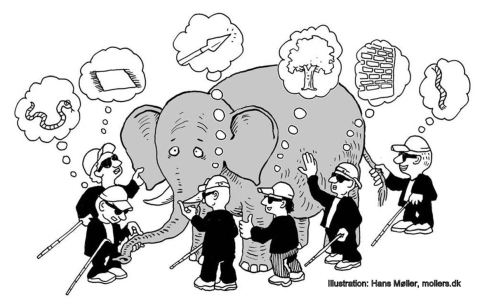Origenes is on fire these days, so let’s headline:

[Origenes, emergence play thread, 57:] The skeptic wants to criticize, but he doesn’t want to be criticized himself. We all make statements of belief, skeptics included. But the skeptic posits a closed circle in which no beliefs are justified. Yet at the same time, he arrogates to himself a position outside of this circle by which he can judge the beliefs of others, a move he denies to his opponents. Since the raison d’être of his thesis is that there is no outside of the circle, he does not have the epistemic right to assume a position independent of it, and so his belief about the unjustifiability of beliefs or reasoning is just as unjustifiable as those he criticizes. If the circle encloses all beliefs, if all beliefs are unjustifiable, he cannot judge between truth and falsity, since any such judgment would be just as unjustifiable as what it seeks to adjudicate. At no point can he step out of the circle to a transcendent standpoint that would allow him to reject some beliefs as tainted while remaining untainted himself.
Food for sobering thought. END